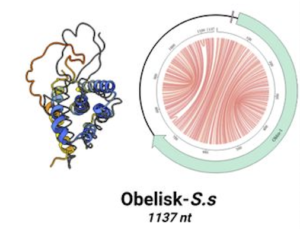From our vantage point at the crossroad where conventional and holistic/integrative medicine converge, we’ve witnessed tremendous creativity and innovation over the last ten years, as well as a fair bit of turbulence and struggle. This is all characteristic of the emergence of….dare I say it? A new paradigm.
It’s an overused word, but it fits, because the values and viewpoints of holistic medicine are about far more than simply alternatives to pharmaceutical therapies and a return to good old-fashioned kindness. They represent a major shift in how we see ourselves. Holistic medicine represents a movement away from the view that the universe is an aggregation of random, disconnected entities and toward recognition of interconnectedness, a view that looks upward from the part to the system of which it is a part. Major shifts, especially when they involve how we see ourselves, are always disruptive.
At present, we’re passing through the rocky narrows—a harrowing place where everything’s tight, nothing’s easy, and there’s no comfortable resting place It is clear that old modes of health care are not working. Yet new systems have not fully established themselves either clinically or economically. Struggles rage between old systems trying to preserve their economic viability and new systems fighting for their places.
It’s certainly an interesting time to be reporting on health care!
Our Fall 2010 edition features an article called, “Crisis & Creation: Ten Years on the Road to Healthier Health Care” in which we asked leaders in the field to share their views on where we’ve been and where we are headed. Space limitations prevented us from publishing all the responses in the print edition, so we’re sharing them here.
Enjoy, and keep up the good work you are doing to bring health back into health care!
Don’t forget to add your comments to this dialog. We’d love to know what was important to you over the last decade and what you hope for in the next one.
In the last ten years, I have witnessed integrative medicine move from its historical perception as a fledgling, touchy-feely, “fringe” branch of medicine to greater acceptance as a solid, scientifically-based area of medicine. Of course, there are still many naysayers, but more physicians and patients are opening their minds.
It is apparent that the conventional medical model, consisting primarily of prescription drugs and surgeries, cannot effectively resolve the epidemics of chronic disease. Integrative medicine, with its more expansive scope of evaluation and treatment choices, has shown itself ready to meet and treat chronic disorders like metabolic syndrome, diabetes, obesity, heart disease, and also diseases in children such as autism, ADHD, asthma and allergies.
Peer-reviewed journals dedicated to integrative medicine have emerged. Universities are establishing residencies and fellowships that apply the integrative model to study and treat chronic disease. There’s even an integrative medicine malpractice policy, which supports and protects practitioners who offer procedures and practices that fall outside the scope of conventional allopathic medicine but within accepted parameters of integrative medicine.
The philosophy of integrative medicine – its emphasis on the physician/patient relationship, individualized patient-centered care, and it’s seeking out of underlying causes of symptoms – is long overdue. But lack of funding for large studies remains a challenge. This is perhaps the largest hurdle we currently face. Another immediate challenge is the need to establish training, certification and credentialing programs for integrative medicine practitioners, and this is being addressed by a number of integrative medicine organizations.
An important new development is that integrative medicine groups have finally begun to come together under the umbrella of the Integrative Medicine Consortium (IMC). The IMC’s first large-scale annual collaborative integrative medicine educational conference will take place next Spring (www.imosaicconference.com) in Minneapolis. We at the IMC are very excited about this, and look forward to many more of these conferences in future years.
In the next ten years I believe we will see continued growth in the field, as more and more physicians and patients find that it is the best way to manage and even prevent complex, chronic diseases. It will increasingly attract the brightest minds to the field, which will produce high quality research and a wealth of clinical knowledge, leading to improved patient outcomes.
Kenneth A. Bock, MD, FAAFP, FACN, CNS, is co-founder of the Rhinebeck Health Center in Rhinebeck, NY, and the Center for Progressive Medicine in Albany. He is Co-founder and Co-Chairman of the Integrative Medicine Consortium, and a Past-President of the American College for Advancement in Medicine. Dr. Bock is author of Healing the New Childhood Epidemics: Autism, ADHD, Asthma, and Allergies.
The biggest change over the last 10 years is simply the realization amongst major stakeholders that things need to change. We’ve seen this with people coming together around the new health care reform legislation, for right or for wrong, saying that we have to do something different. That creates a ripe field for reinventing the way we do health care. Things need to be more holistic, more integrative, more coordinated, and people need to re-think how they take care of patients as a society and as individuals.
When you look at any change, follow the money! The people with the most money at stake will be the big movers and shakers. The population as a whole, as consumers, can have tremendous political voice. But the people that want change the most are those spending the money (ie, the employers). The continued cost increases, coupled with the eroding quality of care in this country has them asking: Why are we spending more and more but getting worse results, poorer quality? This creates fertile opportunity for change.
David K. Nace, MD, is vice-president and medical director of the McKesson Corporation (www.mckesson.com). Prior to joining McKesson, Dr. Nace was corporate medical director with United Health Group, vice president and chief medical officer with the Aetna Corporation, and founder of Health Strategy Solutions, LLC, a benefits consulting firm. Originally trained in psychiatry, he is a now a leader in the field of health informatics.
I believe we are headed towards a more rational approach to patient care focused on what is the best route for each individual patient. I am buoyed by advances in genomics, and I believe that through better understanding of our genetic code we will find better answers for our patients in regards to not only medications, but also diet and supplementation.
I am also encouraged by the growing awareness and appreciation of the healing power of nature within conventional medicine, and by the leadership that many allopathically trained physicians have taken in furthering the natural health movement. The biggest obstacles remain the limitations of patient access to this form of medicine, and (lack of) insurance reimbursement.
Michael T. Murray, ND, is a naturopathic physician and chairman of Dr. Murray Natural Living, Inc (www.doctormurray.com). He is the author of many books on health-related topics, including the popular, “What Drug Companies Won’t Tell You.” He is an alumnus of Bastyr University, and serves on the school’s board of directors. Dr. Murray is director of product development at Natural Factors (www.naturalfactors.com).
The future of integrative medicine appears secure because of the growing consumer lobby for its availability. The rapid growth of the elderly population worldwide will trigger ever-greater interest in anti-aging sciences rooted in integrative medicine. Pandora’s Box is completely open! And it is because of the growing consumer demand for alternatives to standard allopathic systems.
In the past decade, there has been a major growth in the practice of integrative medicine by conventional physicians. There is also a widespread and growing lack of confidence in the safety and efficacy of new drugs. This has led patients to seek gentler natural options.
But there is a real enigma in that government legislation does not permit promotion of remedies of natural origin for disease treatment or prevention, though these are primary reasons why people use these products. Despite the restrictive legislation, more physicians are using dietary supplements or nutraceuticals in the management of disease, and the Food and Drug Administration is starting to encourage use of natural therapies, provided that scientific support exists.
There is a major political lobby that seeks to impair the growth of natural medicine and other innovative fields such as stem cell science, coming from those whose economic model is challenged by natural therapies. At the same time, there is a new wave of enthusiasm within the pharmaceutical industry, as more pharma companies enter the dietary supplement/nutraceutical business.
Stephen Holt, MD, PhD, is a leader in the field of nutrition-based natural medicine and age-management. He is founder and scientific advisor of Natural Clinician, LLC (www.naturalclinician.com) and the newly launched Holt Institute of Medicine. He is the author of numerous books, including the soon to be published “The Anti-Aging Triad” which will be available at www.hiom.org.
The various groups and organizations in holistic healthcare really need to come together, work together, and present cohesive and consistent messages, so that the push for change is not so fragmented. With a more unified message, our political leaders will be better able to define and work toward specific changes. Right now, we have difficulty even agreeing on what words to use!
We are moving toward more effective integration and improved care through education of providers and the public. Several organizations have significant systems in place for educating doctors, and the number of doctors participating continues to grow rapidly. In addition, consumer groups like the Alliance for Natural Health have been instrumental in influencing political decisions toward health and wellness.
Perhaps the most significant development of the decade is simply the growing popularity of and publicity about natural and holistic options. Dire economic conditions are helping to drive change. Along with this is the maturation of the internet as a channel for people to learn about their own medical conditions and become more involved in their own care. Medicine is becoming demystified.
Hal Blatman, MD, is founder and medical director of the Blatman Pain Clinic in Cincinnati. He is board certified in both Pain Management and Occupational and Environmental Medicine, and is a nationally recognized specialist in treating myofascial pain. He is the immediate past-president of the American Holistic Medical Association (www.holisticmedicine.org).
It is no longer rare for conventionally trained doctors to seek and deliver education in integrative/holistic medicine (IHM). Whereas IHM conferences were few and far between 10 years ago, the educational options are quite abundant now. We’re seeing an increase in the number of physicians interested in ABIHM certification in integrative holistic medicine.
Physicians are less apprehensive about how their interest IHM might appear to their more conventional colleagues, and they are beginning to understand that IHM practitioners use the same body of evidence as everyone else, they just ask the questions differently. This is all occurring in the context of an escalating visibility of research in IHM, and a vastly amplified understanding of certain key nutrients, like fish oil and vitamin D, for example. At the same time, there are still many conventional physicians who consider IHM “pseudoscience.” It will take time and further educational effort to change that perception.
We can expect to broaden our presence meaningfully in the future. At the same time, and despite the obvious consumer desire, there are significant obstacles. Good practice requires significant time spent with each patient. Managed care and the time limits it imposes makes meaningful connection very difficult.
Nancy L. Sudak, MD, is a board-certified family physician, practicing at the Lake Superior Community Health Center, Duluth, MN. She is a Clinical Instructor at the University of Minnesota-Duluth School of Medicine, and a contributing author to several textbooks on integrative and functional medicine. Dr. Sudak is the Executive Director of the American Board of Integrative Holistic Medicine (www.holisticboard.org).
One of the landmark events of the last 10 years was the Institute of Medicine/ Bravewell Collaborative’s Summit on Integrative Medicine & the Health of the Public in Washington DC in February, 2009. It brought the right people together to ask the right questions about the future of non-traditional (ie, non-conventional) medicine in the US (for HPC’s review of the Summit, read____ from our Summer 2009 edition). There are still so many issues to be worked out, especially around credentialing, licensure, and scope of practice standardization. Of course, reimbursement for evidence-based, non-conventional services is a big issue.
The movement toward more personalized medicine combined with healthcare reform will force American consumers to become more accountable and also more empowered to come up with their own prevention, wellness, and general health maintenance programs. Ultimately, I would like to see virtual “wheels” of practitioners collaborating in teams to design health regimens that honor an individual’s health goals. Hopefully, non-conventional practices and services will become more accessible and affordable.
I really want to see pharmacists reimbursed for cognitive services such as annual reviews of prescription and OTC medications, as well as herbs, vitamins, and other dietary supplements to help keep people informed, safe, and to help them spend their healthcare dollars as wisely as possible.
Cathy Creger Rosenbaum, PharmD, MPH, RPh, is a holistic clinical pharmacist practicing in Cincinnati. She is also founder of Rx Integrative Solutions (www.rxintegrativesolutions.com), a consultancy focused on strengthening practitioner-patient relationships and optimizing outcomes through judicious and informed use of nutraceuticals, botanicals and conventional pharmaceuticals. Dr. Rosenbaum is president-elect of the American Holistic Medical Association (www.holisticmedicine.org).







